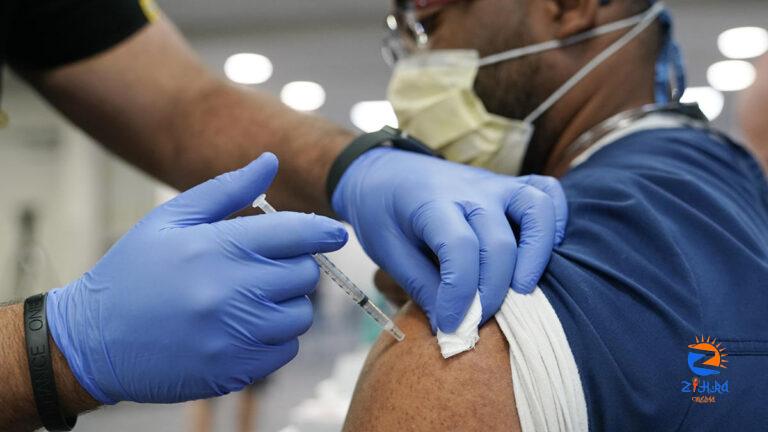
[ad_1]
WASHINGTON — A third shot of the Pfizer vaccine provides robust protection against the new Omicron variant of the coronavirus, the head of the pharmaceutical giant revealed on Wednesday morning, adding to a growing — if yet early — sense that even if the new strain is more transmissible, it does not pose the high degree of danger some initially feared.
“Three doses against Omicron are almost equivalent to the two doses’ effectiveness we had against the original variant,” Albert Bourla, Pfizer’s chairman and chief executive, .
Bourla added that only two doses of the vaccine offer “significant reduction” in antibody response to the new version of the pathogen. Still, even two doses of the vaccine are bound to provide some protection, because in addition to antibodies, the immune system produces memory T cells that provide a kind of long-term backup protection.
In , Pfizer and BioNTech, its partner in developing the vaccine, said that antibody levels rose by 25 times after a third dose, restoring immune protection to what it was against the original SARS-CoV-2 strain.
Pfizer and Moderna both developed vaccines using a technology called messenger RNA, or mRNA, and both require two doses for full vaccination. The vaccine developed by Johnson & Johnson uses an older technology and is a one-dose product. Moderna and Johnson & Johnson have not released their own results of Omicron-focused trials yet, but are expected to do so .
Pfizer’s announcement sparked newfound optimism that even as and new cases of the Omicron variant continue to appear across the nation, a relatively high vaccination rate may have equipped the United States to withstand a winter surge better than last year. Financial markets Wednesday morning.
Last week, President Biden for the months ahead predicated on encouraging vaccinations while avoiding crippling lockdowns and school closures. Since then, his administration has labored to point out that while much remains unknown about Omicron, the tools effective against Delta — namely, vaccines, though also face masks — are bound to offer some protection against the new strain as well.
Bourla’s disclosure on Wednesday morning seems to suggest that the degree of protection is, in fact, relatively high for people who have received boosters.
However, the notion that protection against the Omicron variant requires a third shot offers complications. While about 60 percent of Americans are fully vaccinated, , only 24 percent of the fully vaccinated population is also boosted.
That means only 14.3 percent of all Americans are fully protected against the Omicron variant, if Bourla’s assessment holds. Not only that, but people who were vaccinated last spring are likely seeing their protection fading, since vaccine efficacy declines with time. Nor is it clear just yet what course of action recipients of non-Pfizer vaccines need to take, in particular those to whom the one-dose Johnson & Johnson vaccine was administered.
“If we really want to get the virus under control, of course we need to get the unvaccinated to become vaccinated. But we also need vaccinated people to have full protection,” Dr. Ashish Jha, dean of public health at Brown University, .
[ad_2]